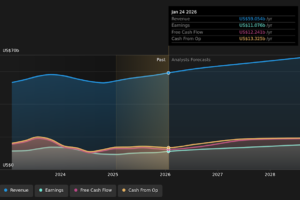Elevated blood pressure and cholesterol levels in young adulthood may lead to an increased risk of coronary heart disease later in life, according to research published Tuesday in the peer-reviewed Journal of the American College of Cardiology.
The researchers examined data from 36,030 adult participants and followed up with these adults over a period of 17 years. There were 4,570 incidents of coronary heart disease, 5,119 heart failure events and 2,862 stroke events among the sample.
‘Young adulthood is a critical period when high blood pressure or cholesterol are particularly harmful.’
“Young adulthood is a critical period when high blood pressure or cholesterol are particularly harmful,” said Dr. Andrew Moran, associate professor at Columbia University and senior author of the study. Maintaining healthy levels could bring “substantial lifetime” benefits, he added.
“However, young adults are difficult to reach by way of traditional, clinic-based preventive programs,” Moran added. “They are transitioning between pediatric and adult-centered models of care. They often lack health insurance or experience frequent gaps in insurance coverage.”
Don’t miss: Why the middle-aged ‘dad bod’ could be deadly instead of sexy
Here’s what they found: High blood pressure and high cholesterol in young adulthood were both strongly correlated with heart disease later in life. Elevated low-density lipoprotein — or “bad” cholesterol — in young adulthood was associated with a 64% increased risk of heart disease.
High systolic blood pressure — the pressure in the arteries when the heart muscle contracts — and diastolic blood pressure — the pressure in the arteries when the heart rests between beats — in young adulthood were associated with a 37% and 21% increased risk of heart failure, respectively.
Overall, approximately 75 million American adults (32%) have high blood pressure and just over half (54%) have this condition under control, according to the Centers for Disease Control and Prevention. It’s also one of the major contributing factors to stroke in young adults.
Preventative measures include taking statins — or lipid-lowering drugs — and a range of drugs used to lower cholesterol.
While high blood pressure and high cholesterol were not independently associated with stroke in young adults, increased levels of both high systolic blood pressure or diastolic blood pressure later in life were strong predictors of stroke, the study added.
Preventative measures in early adulthood include taking statins — lipid-lowering drugs — and drugs to lower cholesterol, which can be more effective than merely relying on diet and exercise, particularly for those who have a genetic predisposition to high cholesterol and elevated blood pressure, experts say.
The cost of heart disease: “By 2035, cardiovascular disease, the most costly and prevalent killer, if left unchecked, will place a crushing economic and health burden on the nation’s financial and health-care systems, a new study projects,” according to a 2017 study commissioned by the American Heart Association.
The prevalence and costs of cardiovascular disease are expected to more than double from over $555 billion currently to $1.1 trillion by 2035, the study concluded. By then, the report said that 123.2 million Americans will have high blood pressure, there will be 24 million coronary heart disease patients, 11.2 million people suffering from stroke and 7.2 million Americans with atrial fibrillation.
The American Heart Association study also found that, by age 45, your cardiovascular disease risk is 50%, but jumps to 80% by the age of 65. Black Americans will have the highest rates of cardiovascular disease by 2035, followed by Hispanics. “On average, an employee with cardiovascular disease costs his or her employer nearly 60 hours and over $1,100 more in lost productivity per year than an employee without cardiovascular disease,” it added.
 iStockphoto
iStockphoto
However, an earlier study found that the majority of people who are recommended to take cholesterol-lowering medication are from disadvantaged backgrounds and, as such, are less likely to have health insurance and receive recommended medications.
There are also precautions people can take when they have heart surgery. Patients who have had heart surgery spend most of their waking hours remaining sedentary, which could shorten their life, earlier research suggests. Standing up, taking walks and burning over 770 calories per day after surgery should help prolong their life.
Ailar Ramadi, postdoctoral fellow in the Faculty of Rehabilitation Medicine at University of Alberta, Edmonton, said, “There is a lot of evidence now that sitting for long periods is bad for health.” He studied 132 patients with coronary artery disease and an average age of 63 years; 77% were men.
He is hardly the first doctor to effectively recommend walking your way to a longer life. Walking at an average pace was linked to a 20% reduction in the risk of mortality compared with walking at a slow pace, according to a study published last year in the British Journal of Sports Medicine.
And a separate Harvard University study concluded that you could add 10 years to your life by eating a healthy diet, exercising 30 minutes or more a day, maintaining a healthy weight — a body mass index between 18.5 and 24.9 — never smoking and drinking a moderate amount of alcohol.










